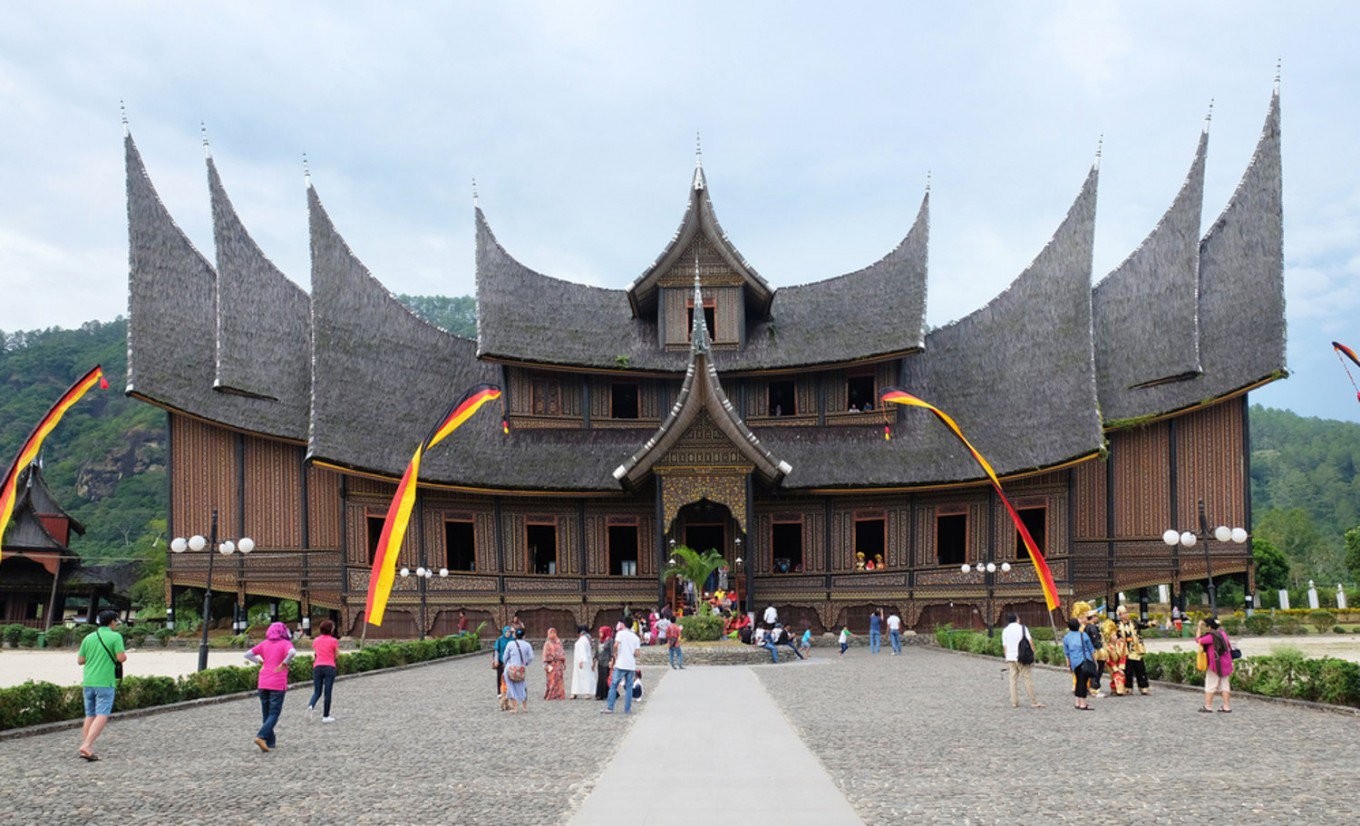Popular Reads
Top Results
Can't find what you're looking for?
View all search resultsPopular Reads
Top Results
Can't find what you're looking for?
View all search resultsEssay: Minang wisdom and radicalism
Local wisdoms, for instance, might contribute in an attempt to fight terrorism in Indonesia — case in point: the culture of Minang.
Change text size
Gift Premium Articles
to Anyone
I
n a recent conference attended by around 100 clerics and scholars from different countries to discuss promoting the concept of moderate Islam in Bogor, West Java, the grand imam of Al Azhar University, Syekh Ahmed Ath-Thayyeb, said differences and conflicts between Islamic groups had weakened the Muslim community.
In Indonesia, such differences and conflicts have metamorphosed into terror acts by those who had manipulated and hijacked the peaceful teachings of Islam.
For Indonesians, fighting terrorism should entertain a local approach since the “think globally, engage locally” principle is the key to figuring out radicalism finding its foothold in different regions.
In the context of the archipelago, however, a lot has to do with the region’s cultural characteristics. Customs, traditions and local wisdoms might play a pivotal role in combating terrorism in this country.
Local wisdoms, for instance, might contribute in an attempt to fight terrorism in Indonesia — case in point: the culture of Minang.
First of all, Minang culture accentuates inclusivity. The adages of dima bumi dipijak, disinan langik dijunjuang (the sky will be held high no matter the ground you stand on) and lain lubuak lain ikannyo lain ladang lain belalangnyo (each grassland is home to its own kind of locust and each pond is home to its own kind of fish) suggest that we must observe local customs since each place has its own customs and culture. Thus, we should not measure others by our own yardstick.
Such strong emphasis on inclusivity makes it easier for Minang people to interact with people of different backgrounds and cultures. That is why there is no “Padang town”, unlike China towns or Javanese villages, which are easily found across the archipelago. They believe that being exclusive is not simply detrimental to their social transformation but also opens the door to conflict.
Concerning terrorism as a part of radical teachings, there is a strong tendency for terrorists to appear on an exclusive social stage; intermingling with their own people instead if assimilating with others, undermining their non-group members and viewing their values as superior to the locals’ moral standards. They believe themselves to be saviors with unquestionable claims of truth and salvation.
Considering the terrorists’ exclusive treats, the government might team up with Minang intellectuals, ulema and traditional leaders to restore those involved in terrorist circles through an educational approach such as dialogue and field trips. Cushioned by strong Islamic values within the Minang culture, it is hopeful that those recruited by terrorist groups will be rehabilitated into friendly Muslims.
Second, democracy constitutes an essential value in Minang culture. When people pay Istano Basa Pagaruyung a visit — a palace without a king, rebuilt after the suppression of the Revolutionary Government of the Republic of Indonesia (PRRI) movement in 1958 in West Sumatra — they will not find a throne in it. Why? Because Minang culture adheres to the notion of duduak samo randah tagak samo tinggi (when sitting down, we are equally low; when standing up, we are equally tall). Social castes and discrimination have been long culturally blocked in favor of open-mindedness within the Minang culture.
Underpinned by the principle of duduak samo randah tagak samo tinggi, Minang people never look up to someone to the point of reverence.
In this perspective, the Minang culture could be instrumental in taming the tendency of idolizing and worshipping any particular leader preaching radical thoughts.
Together with historians, the government could launch a massive campaign against terrorism through biographical studies of Minang figures as to the connection between their democratic way of life and Minang culture.
This attempt would expose the very nature of Hatta, Sjahrir, Agus Salim, Hamka, M. Yamin, Natsir and Tan Malaka. In spite of their ideological distinctions, they are considered great individuals who managed to escape the entrapment of radical acts often used by others to justify their means. The biographical studies would later conform to the fact that their greatness is inseparably linked to their Minang background.
Third, Minang culture pays much attention to the power of traditional networking. In terms of leadership, Minang wisdom highlights the significance of networking.
In Minang terms, the success of leadership is rooted in the balance of three pillars – known as the tigo tungku sajarangan (the three stoves at the hearth). They are niniak mamak (head of the clans), alim ulama (religious scholars) and cadiak pandai (experienced and enlightened elders).
In practice, West Sumatra’s unique form of administration is useful in coping with various social problems, like gambling and adultery. Central to their success in tackling assorted social illness is a regular forum involving the three pillars.
Former Solok regent Syamsu Rahim, for example, does well to push down crime rates, social illnesses and crisis of legitimacy at the level of nagari, an administrative system equal to the kelurahan (village) in other provinces, for his breakthrough in involving niniak mamak, alim ulama, and cadiak pandai across his regency.
Syamsu’s success story reminds us of the necessity of traditional networking system in response to assorted social pathologies, including terrorism. It is often the case that traditional leaders have more penetrating powers into untouchable areas.
Similar approaches may prove to be effective in eradicating the spread of radicalism, especially considering the likely accessibility of traditional leaders’ toward radical kingpins.
***
The writer, a lecturer at the School of Cultural Sciences at Andalas University, Padang in West Sumatra, is pursuing a doctorate at Deakin University, Australia.











